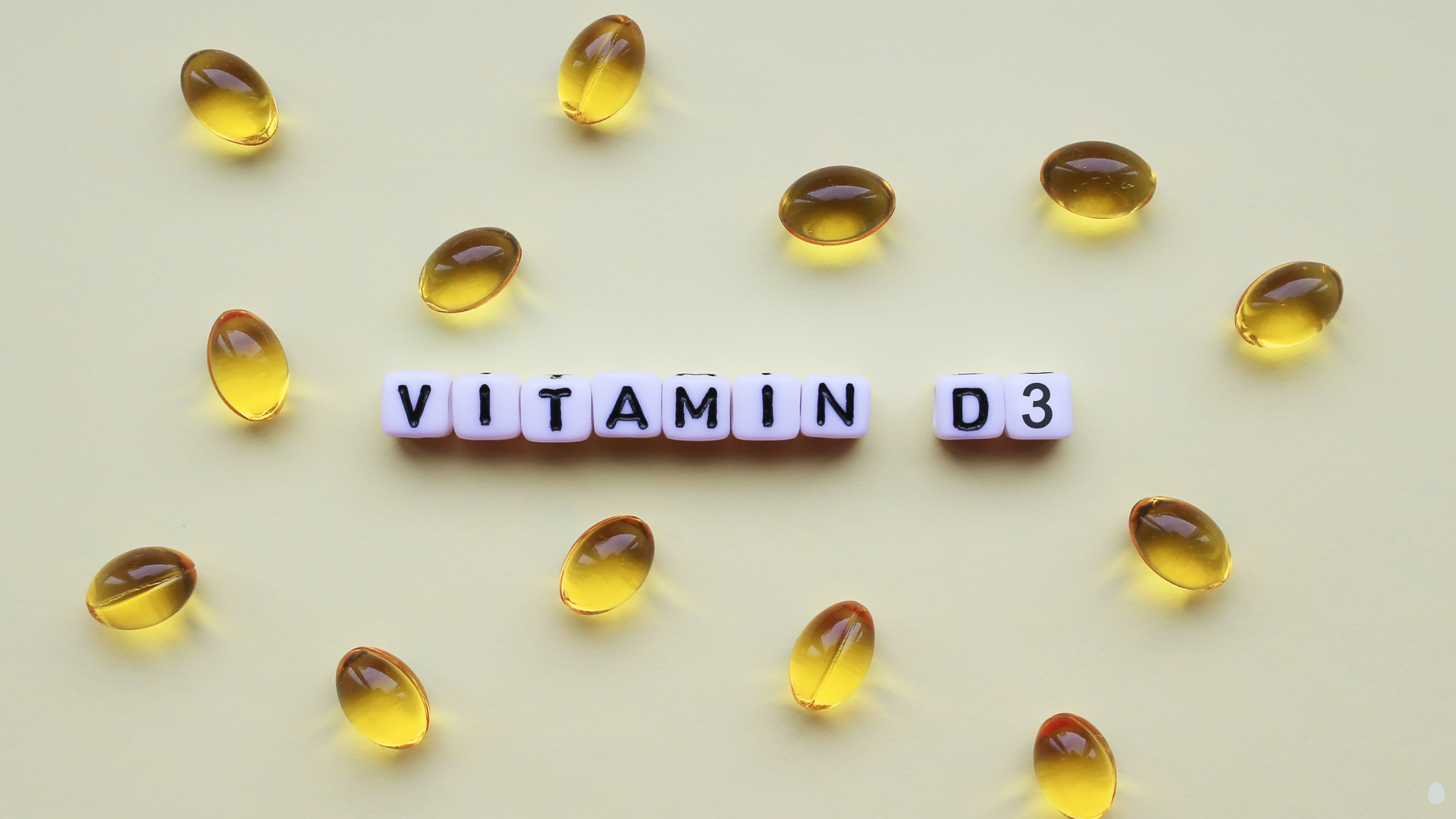
The Hidden Fitness Booster: Why Every Athlete Needs Vitamin D3?
Did you know that over 1 billion people worldwide are deficient in vitamin D—and many of them are athletes? Despite rigorous training, optimal nutrition, and cutting-edge recovery techniques, countless fitness enthusiasts and professional athletes overlook one crucial element: vitamin D3. While protein powders and creatine dominate fitness conversations, vitamin D3 quietly plays a pivotal role in strength, recovery, immunity, and even injury prevention. Often dubbed the "sunshine vitamin," this powerhouse nutrient does far more than support bone health—it’s a game-changer for athletic performance, muscle recovery, and immune function. For athletes, maintaining optimal vitamin D levels isn’t just beneficial—it’s essential for peak performance.
The Importance of Vitamin D: More Than Just a Vitamin
Vitamin D3, also known as cholecalciferol, is a fat-soluble vitamin that helps regulate calcium and phosphorus in the body—two minerals essential for bone strength and muscular function. Unlike other vitamins, vitamin D3 can be synthesised by the body when the skin is exposed to sunlight. However, due to limited sun exposure, sunscreen use, and darker skin tones, deficiency is rampant even in sun-rich regions.
Vitamin D plays a vital role in:
- Calcium absorption (critical for bone density)
- Muscle function (reducing injury risk)
- Immune regulation (preventing illness)
- Inflammation control (speeding up recovery)
Why Do Athletes Need Vitamin D3?
1. Enhances Muscle Strength and Performance
Vitamin D3 has a direct impact on muscle protein synthesis and muscle fibre contraction. Vitamin D receptors are present in muscle tissue, indicating its direct role in muscle function. It binds to vitamin D receptors (VDRs) found in muscle tissue, enhancing muscle growth and performance.
Research shows that athletes with sufficient vitamin D levels have:
- Greater muscle strength (especially in explosive movements)
- Improved reaction times
- Better endurance capacity
Research shows that athletes with low vitamin D levels experience significant strength improvements after supplementation. A study published in the Journal of Science and Medicine in Sport shows that athletes with optimal vitamin D levels have higher vertical jump heights and sprint times compared to those who were deficient.

2. Reduces Injury Risk and Supports Bone Health
Athletes are prone to stress fractures and bone injuries, particularly in high-impact sports. Vitamin D enhances calcium absorption, ensuring stronger bones and lower fracture risk.
Female athletes with low vitamin D3 are four times more likely to suffer stress fractures. Research shows that athletes with vitamin D levels below 30 ng/mL have a two-fold higher risk of bone injuries compared to those with optimal levels.
3. Speeds Up Recovery and Reduces Inflammation
Hard training leads to microtears in muscles and tissues. The body’s repair process can be either smooth or sluggish, depending on nutrients like vitamin D3. This vitamin aids in reducing inflammation, speeding up the healing process.
Vitamin D3 supplementation reduces inflammatory cytokines and oxidative stress in athletes, promoting faster recovery. Athletes supplementing with vitamin D experience lower post-exercise muscle soreness and quicker restoration of muscle function.

4. Boosts Immune Function
Athletes often face suppressed immunity due to intense training loads. Overtraining can weaken the immune system, making athletes more susceptible to infections. Vitamin D3 plays a crucial role in modulating immune responses, lowering the risk of upper respiratory tract infections, especially during winter months.
Athletes with adequate vitamin D levels have fewer infections and faster recovery from illness. Some studies suggest that maintaining sufficient vitamin D3 levels could reduce the incidence of infections by 50% in athletes, especially during heavy training seasons.
5. Improves Testosterone Levels (Crucial for Athletic Performance)
Testosterone is vital for muscle growth, strength, and recovery. Studies indicate that vitamin D3 supplementation can increase free testosterone levels in athletes.
A Hormone and Metabolic Research study shows that men supplementing with vitamin D for a year may have significantly higher testosterone levels than the placebo group.

6. Improves Cardiovascular and Lung Function
High-performance athletes need robust lung and heart function. Vitamin D3 influences cardiopulmonary efficiency, enhancing VO₂ max and overall endurance. Higher vitamin D3 levels are often linked to increased cardiorespiratory fitness, including higher oxygen uptake.
7. Improves Mood and Mental Focus
Athletes are prone to mental stress and burnout. Vitamin D3 affects serotonin production, thereby improving mood, reducing anxiety, and enhancing cognitive function. Vitamin D3 supplementation in athletes can lead to improved mood states and reduced symptoms of depression.

How Much Vitamin D3 Do Athletes Need?
The recommended daily allowance (RDA) for vitamin D is 600–800 IU, and some research suggests that athletes do not need a higher amount. However, some suggest that athletes often require higher doses (2000–5000 IU daily) due to increased metabolic demands. Blood levels should ideally be 50–80 ng/mL for optimal performance.
Conclusion
Vitamin D3 is more than just a vitamin—it’s a performance enhancer, a recovery booster, and a shield against illness and injury. While protein and carbs fuel your workouts, vitamin D3 fine-tunes your body’s internal systems for optimal performance. Every athlete, whether elite or recreational, should make this unsung hero part of their daily regimen.
So don’t let a hidden deficiency hold you back. Incorporate Vitamin D3 by Route2Health into your routine and take your fitness journey to the next level!
FAQs
1. Can vitamin D3 improve athletic performance?
Yes, studies show that vitamin D3 improves strength, recovery, and endurance by influencing muscle fibres and reducing inflammation.
2. How do I know if I’m vitamin D deficient?
Common signs include fatigue, frequent illness, joint pain, and mood swings. A blood test (25(OH)D) is the most accurate way to confirm deficiency.
3. Is 5000 IU of vitamin D3 safe for daily use?
Yes, for most adults and athletes, 5000 IU daily is safe and effective, especially under medical supervision.
4. Can I get enough vitamin D3 from food?
It's difficult. Foods like salmon, egg yolks, and fortified milk contain vitamin D3, but usually not enough to meet athletic needs.
5. Should I take vitamin D3 in the morning or at night?
Vitamin D3 is fat-soluble and best taken with meals that contain healthy fats—preferably in the morning or early afternoon.






















































